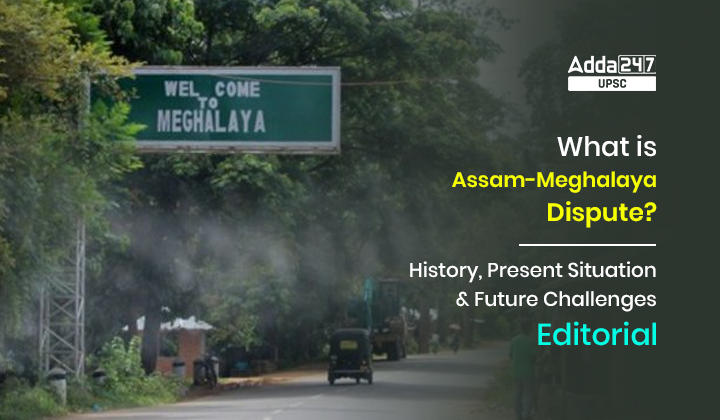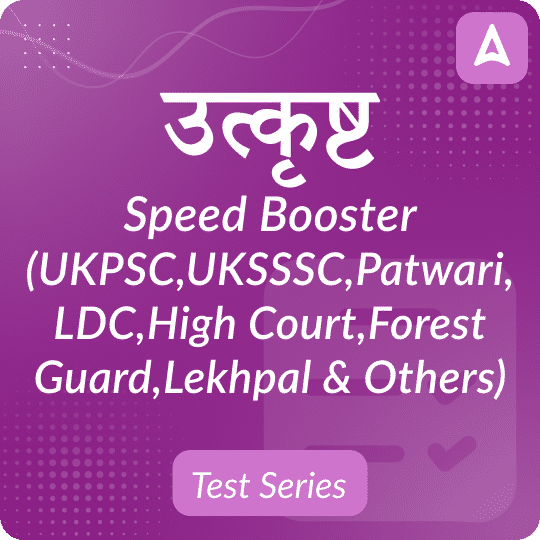Table of Contents
Significance of Issues like Assam-Meghalaya Dispute for UPSC
For UPSC CSE, Issues like Assam-Meghalaya Dispute, Maharashtra-Karnataka Dispute, Andhra-Telangana Dispute, etc. are very important and demands a regular watch. They cover UPSC Mains’ General Studies Paper 2: Inter-State Relations, Government Policies & Interventions.
Why Assam-Meghalaya Dispute in news?
- Assam-Meghalaya Dispute is once again in news as, six people, including an Assam Forest Guard, were killed and several others injured during an alleged clash between the Assam Police and a mob, around 3 am in morning, in an area bordering the West Karbi Anglong district of Assam and Mukroh village in Meghalaya’s West Jaintia Hills.
- After that, tension gripped the Assam-Meghalaya border areas.
- A huge number of people from Meghalaya armed with ‘dao’ (dagger) and other weapons gathered at the spot. Later, the Assam government said it would hand over the probe into the violence to a central or neutral agency.
Also Read: Assam-Meghalaya Border Dispute
What happened last year between Assam and Mizoram?
- Last year, the police forces of Assam and Mizoram clashed, killing five on the Assam side.
- In March this year, Assam and Meghalaya resolved the boundary dispute at six out of total 12 such locations along their 884.9 km boundary, and the next round of talks was to take place soon.
What is the latest dispute?
- On November 22, five villagers from Meghalaya and an Assam forest guard were killed and two others were seriously injured in a firing incident along the boundary between the two States.
- The Assam government said the incident happened after its forest guards tried to intercept a truck smuggling illegal timber.
- When the truck was stopped, the forest personnel were gheraoed by unknown miscreants who resorted to violence, according to Assam, which maintains that the staff resorted to firing to save their lives.
- Meghalaya Chief Minister Conrad Sangma said that the Assam police and Assam forest guards entered Meghalaya and “resorted to unprovoked firing”.
- Both States have instituted separate inquiries.
- But the mistrust and underlying conflicts in the northeast that lead to such incidents are deeper.
What is the border dispute between Assam and Meghalaya?
- Assam and Meghalaya have a longstanding dispute in 12 stretches of their 884-km shared border.
- During the British rule, undivided Assam included present-day Nagaland, Arunachal Pradesh, Meghalaya and Mizoram. Meghalaya was carved out in 1972, its boundaries demarcated as per the Assam Reorganisation (Meghalaya) Act of 1969, but has held a different interpretation of the border since.
- Some of these disputes stem from recommendations made by a 1951 committee headed by then Assam chief minister Gopinath Bordoloi.
- In 2011, the Meghalaya government had identified 12 areas of difference with Assam, spread over approximately 2,700 sq km.
What is the history of Assam-Meghalaya Conflict?
5 Decade Old Boundary Dispute
- Assam and Meghalaya share an 885-km border. In 1970, Meghalaya was carved out of Assam as an autonomous state. In 1972, Meghalaya became a full-fledged state following the Assam Reorganisation (Meghalaya) Act of 1969.
- Meghalaya, carved out of Assam as an autonomous region in 1970, became a full-fledged State in 1972.
- This was the beginning of the border problem as the Meghalaya government found the Act unacceptable.
- Assam has boundary disputes at various points in time with the States carved out of it — Arunachal Pradesh, Nagaland, Meghalaya and Mizoram. Dozens of people have died in conflicts along State borders in the northeast over the years.
- So, Assam and Meghalaya have a five-decade old boundary dispute.
12 land dispute points
- As many as 12 land dispute points, along the border of these two states, have been a bone of contention.
- These include Langpih, Upper Tarabari, Gazang reserve forest, Hahim, Borduar, Boklapara, Nongwah, Matamur, Khanapara-Pilangkata, Deshdemoreah Block I and Block II, Khanduli and Retacherra.
A colonial legacy
- The Assam-Meghalaya dispute have their origins in the colonial cartography that overlooked the life patterns of local communities.
- Traditional hunting, grazing and farming grounds of communities got divided by modern administrative boundaries at many places.
- When new States were formed, such concerns acquired a more serious nature, and the Naga demand for a unified homeland that is now spread beyond the State of Nagaland is instructive.
What kind of attempts made to resolve Assam-Meghalaya Conflict?
- A number of attempts had been made in the past to resolve the boundary dispute.
- In 1985, under then Assam chief minister Hiteswar Saikia and Meghalaya chief minister Captain W A Sangma, an official committee was constituted under the former Chief Justice of India Y V Chandrachud. However, a solution was not found.
- From July 2021, Sangma and his Assam counterpart, Himanta Biswa Sarma, held several round of talks to make some headway.
Consensus for resolving the Assam-Meghalaya Dispute
- Both state governments(Assam & Meghalaya) identified six out of 12 disputed areas for resolution in the first phase: three areas contested between West Khasi Hills district in Meghalaya and Kamrup in Assam, two between RiBhoi in Meghalaya and Kamrup-Metro, and one between East Jaintia Hills in Meghalaya and Cachar in Assam.
- After a series of meetings and visits by teams to the disputed areas, both sides submitted reports based on five mutually agreed principles: historical perspective, ethnicity of local population, contiguity with boundary, peoples’ will and administrative convenience.
- A final set of recommendations were made jointly: out of 36.79 sq km of disputed area taken up for settlement in the first phase, Assam would get full control of 18.46 sq km and Meghalaya of 18.33 sq km. In March, an MoU was signed based on these recommendations.
- The six areas taken up did not have major differences and were easier to resolve, which is why they were picked in the first phase.
- The remaining six areas are more complex and may take longer to resolve.
What should be done to avert future conflicts between Assam & Meghalaya?
- It is unfortunate and tragic that States that are part of the Indian Union are involved in violent clashes with one another.
- The BJP is in government in much of the northeast and has the leverage to aim for a comprehensive resolution of all outstanding disputes in the region.
- Communities will have to be taken into confidence, and boundaries adjusted. In any case, these man-made lines should not be allowed.
- The policy makers should go ahead by following Five principles which are considered while resolving the border disputes: historical facts, ethnicity, administrative convenience, willingness and sentiments of the people concerned and the contiguity of the land, preferably with natural boundaries such as rivers, streams, and rocks.
Also Read: Naga Ceasefire Agreement
Conclusion
The Assam-Meghalaya pact was seen as a major achievement, as Assam’s border disputes with other states in the Northeast have remained unresolved despite multiple rounds of talks. So, the firing incident should not be allowed to derail the upcoming talks between the two sides.
FAQs
Q. How many land dispute points are there between Assam and Meghalaya?
Ans. As many as 12 land dispute points, along the border of these two states, have been a bone of contention.
Q. During the British rule, which Indian states were part of undivided Assam?
Ans. During the British rule, undivided Assam included present-day Nagaland, Arunachal Pradesh, Meghalaya and Mizoram.
Q. When Meghalaya was formed?
Ans. Meghalaya was carved out from Assam in 1972, its boundaries demarcated as per the Assam Reorganisation (Meghalaya) Act of 1969, but has held a different interpretation of the border since.
Other Important Articles on Internal Security









 TSPSC Group 1 Question Paper 2024, Downl...
TSPSC Group 1 Question Paper 2024, Downl...
 TSPSC Group 1 Answer key 2024 Out, Downl...
TSPSC Group 1 Answer key 2024 Out, Downl...
 UPSC Prelims 2024 Question Paper, Downlo...
UPSC Prelims 2024 Question Paper, Downlo...







